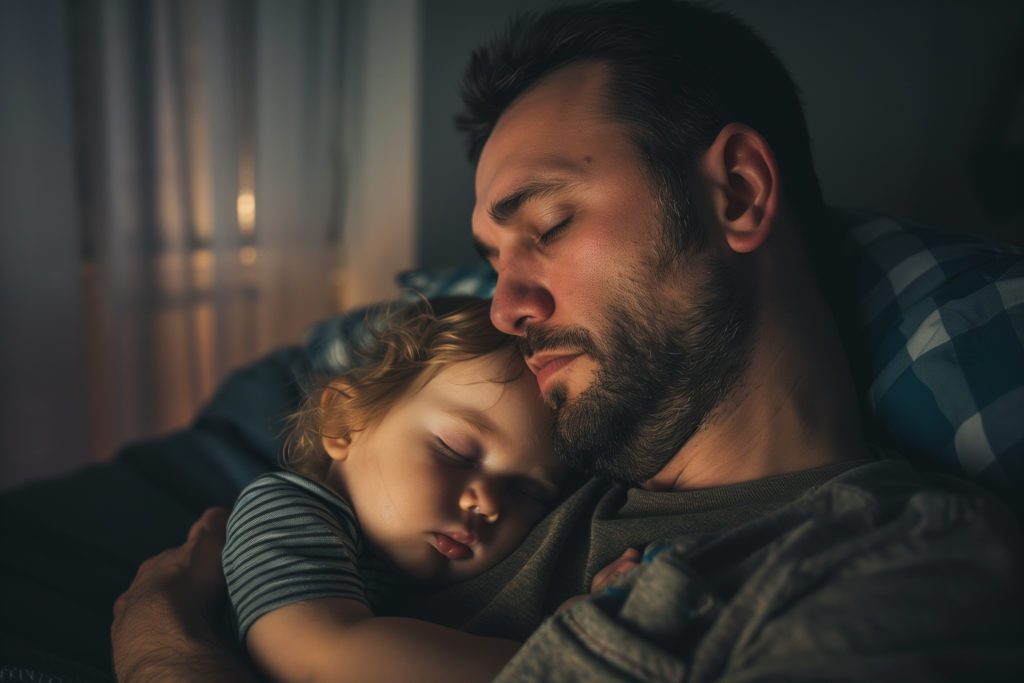
Understanding and Managing Sleep Disorders in Teenagers: A Guide for Parents
Read about common sleep disorders among teens, including what they are and their symptoms. Learn practical strategies to support your teen’s sleep health!

Sleep can be challenging for teenagers, especially since puberty disrupts and alters their normal circadian rhythm. For parents, it is important to understand some of the most common sleep disorders, their symptoms, and how to manage them. Believe it or not, your teen may have a sleep disorder, and you may not even know it. Fortunately, we have created this guide to help you understand how to support your teen.
In this guide, we’ll explore four of the most common sleep disorders among teens: insomnia, delayed sleep phase syndrome, parasomnias, and hypersomnia. We’ll uncover what each sleep disorder is, what its symptoms are, and how you can help your teen manage it. Finally, we’ll discuss the impact of poor sleep and sleep disorders on your teen and why it is so important to manage these conditions. Without further ado, let’s explore the first disorder: insomnia.
1. Insomnia
What is Insomnia?
As one of the most common sleep disorders in teens, insomnia is more than just poor sleep. Between staying up late doing homework and their circadian rhythm shifting two hours later than normal, teens can develop insomnia. They are more likely to struggle with getting to bed, maybe tired during the day, and maybe more at risk for systemic inflammation. Teens may also be more likely to develop depression as a result of their insomnia (Source: PubMed).
How to Manage Insomnia
If you suspect your teen has insomnia, there are a few steps you can take to help them manage their disorder. First, encourage them to create a restful environment for sleep. That means also avoiding coffee and sugar in the evening. You can also help them create a regular sleep schedule, ensuring that their body becomes more attuned to resting on a set schedule.
2. Delayed Sleep Phase Syndrome (DSPS)
What is DSPS?
Because teens generally experience a two-hour shift in their sleep schedule during their adolescence, many teens are likely to develop DSPS. This is a change in the sleep and wake patterns, and it can have an effect on your teen’s overall health (Source: PubMed). Your teen may have this disorder if they struggle with going to bed on time and waking up at the right time. Many teens may also present social challenges or even poor academic performance as a result. This is similar to insomnia but more along the lines of teens simply struggling to get to bed rather than sleep the whole night.
How to Manage DSPS
If your teen likely has DSPS, there are a few steps you can take to help them regulate their circadian rhythm and their sleep and wake schedule. You can use bright light therapy at home, meaning you encourage your teen to get light exposure during the day and right when they wake up. You can also use chronotherapy, which means that you delay their bedtime by two hours every few days, but this may have adverse effects on your normal daily schedule.
3. Parasomnias
What Are Parasomnias?
Parasomnias are common among teens and can present themselves in diverse ways. If you have ever seen your teen sleepwalk or even encounter numerous regular nightmares, they may have parasomnia. Parasomnias are simply bizarre behaviors that your teen may present when asleep. Some other forms of parasomnias can be sleep terrors, nocturnal sleep-related eating disorders, and even bedwetting, typically seen in younger kids.
How to Manage Parasomnias
In most cases, you will likely need to visit a medical professional to see what would be best for managing your teen’s parasomnias. Because of the wide variety of symptoms and types, managing these parasomnias could include seeing a counselor, taking pharmaceutical interventions, or even doing stress-relieving exercises (Source: PubMed). Regardless, with a medical professional’s help, you can ensure your teen gets better sleep and avoids nighttime disruptions.
4. Hypersomnia
What is Hypersomnia?
For teens who have trouble staying awake during the day despite having enough sleep, the likely diagnosis is hypersomnia. This condition can affect girls more than boys and is common in adolescents or young adults. Your teen may have this condition if they sleep longer than average but still can’t stay alert during the day. They may also have less energy, slower responses, and even a headache or loss of appetite.
How to Manage Hypersomnia
Many people tend to manage their hypersomnia with medications, but there are other ways to support your teen’s overall health. You can help them make lifestyle changes, like encouraging a better sleep schedule or creating a better sleep environment. Many of the treatments will help with daytime sleepiness, but ultimately, this disorder is more difficult to cure and requires regular management (Source: PubMed).
Why Managing Sleep Disorders During Adolescence is So Important
Losing sleep one night in a blue moon can be annoying, but consistent challenges—like sleep disorders—can do more damage than you think. Many teens are affected by sleep disorders in more ways than just their restfulness. Sleep disorders can affect the following in your teen:
- Mood and Behavior: Many sleep disorders are tied to depression and anxiety, as seen with insomnia, changing their mood and their behavior in adverse ways.
- Academic Performance: The less rested teens are, the poorer they perform on tests and assignments, making it harder for them to succeed in school.
- Physical Health: From inflammation to consistent illnesses, teens need adequate sleep to feel their best and to avoid sicknesses and health challenges.
Regardless of what your teen struggles with, it’s so important to understand how sleep disorders impact their health and, ultimately, their futures as individuals. By learning more about these sleep disorders, you’re taking the first step to support your teen’s health even more than before!
How Will You Support Your Teen’s Sleep Health?
Now that you know more about the four most common sleep disorders and how to manage them, you are better equipped to support your teen’s sleep health. From creating the right environment to light exposure, you can help your teen feel more rested. If you feel your teen may have a sleep disorder, reach out to your doctor to see what they recommend before making changes for your teen’s health.
FAQ
My teen sleeps a lot on weekends—should I be worried?
If they’re making up for lost sleep during the week, it’s a sign they aren’t getting enough rest. While occasional sleeping in is fine, consistently long weekend naps can indicate an underlying sleep issue.
How can I help my teen wake up more easily in the morning?
Natural light exposure in the morning, a consistent wake-up time (even on weekends), and avoiding caffeine in the evening can all help regulate their sleep schedule.
Is it bad if my teen naps after school?
Short naps (20–30 minutes) can help, but long naps can backfire, making it harder for them to fall asleep at night. If they nap daily and still feel exhausted, there may be an underlying sleep issue.
Is it normal for teens to sleepwalk or have night terrors?
It can be! These are types of parasomnias that some teens experience. If it happens often or puts them at risk, talking to a doctor may be a good idea.
Why does my teen fall asleep in class but stay up late at night?
It’s not laziness—teens naturally have a delayed sleep phase, making it harder for them to fall asleep early. But early school start times force them to wake up before their bodies are fully rested.
Why does my teen grind their teeth at night?
Bruxism (teeth grinding) is often linked to stress, anxiety, or even misaligned teeth. It can cause headaches, jaw pain, and poor sleep. A dentist may recommend a mouthguard to help.

Written by
Marie Soukup
Marie Soukup is a seasoned copywriter, editor, and Integrative Nutrition Health Coach with a certificate from the Institute of Integrative Nutrition (IIN). With years of experience working with brands across diverse industries, Marie is passionate about holistic health and crafting compelling content.
Download Pillow
Get help
Press & News
Legal
Connect
X (Twitter)
Company
Copyright © Neybox Digital Ltd.



